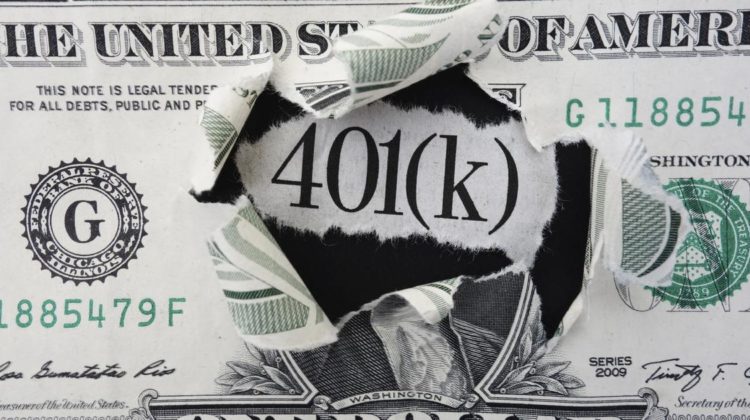
The $900 billion stimulus bill that Congress passed Monday allows workers to take money from their 401(k)s without being hit with a tax penalty — a provision carried over from the Coronavirus Aid, Relief, and Economic Security (CARES) Act passed last March.
Anyone can take up to $100,000 from their account — through a loan or withdrawal — as long as they live in an area where a major disaster has been declared, according to the bill. Under the CARES Act, the provision came with eligibility requirements that are no longer necessary because President Trump has designated all 50 states as major disaster areas due to the coronavirus pandemic.
But even though withdrawing funds from a retirement account is penalty-free, for now, financial planners say raiding that account should be a last resort. Withdrawing will ultimately put someone on “an exit ramp to eternal financial sadness,” said Paul Ruedi, a retirement planner in Illinois.
“If you took out $100,000 from your account during the end of March this year, you would have missed the 66.88% gain in the broad stock market,” he said. “That’s a loss of opportunity of $66,880 that you never get back.”
Ruedi and other financial planners said workers should elect to borrow from the 401(k) instead of taking a withdrawal. The borrow option forces someone to pay back the money over three years and get some chance at restoring the pre-pandemic balance, said Michael Reese, a Texas-based certified financial planner.
“Most people who take out a distribution aren’t going to put it back and that’s gonna damage their long-term financial health,” said Reese, who specializes in retirement. “To go in there now is just crippling you. You’ll cost yourself another 5 or 10 years of work because you took out that $100,000.”
Taking an early withdrawal from a retirement account before age 59 1/2 isn’t a rare move for Americans. One in three full-time workers, or 33%, have taken out or plan to take out money this year, according to a survey from the Transamerica Center for Retirement Studies. That’s roughly the same level of withdrawals from last year, according to survey data from the center.
Even before the pandemic many workers have needed to dip into their retirement account to make ends meet, Transamerica CEO Catherine Collinson said. It will take years for those people to recover those losses and some many never recover, she added.
In a normal year, anyone under age 59 1/2 who takes money from their 401(k) would have 10% immediately dunned by the IRS and that money would also be tacked on to their annual income — meaning they could see a larger tax bill at the end of the year. Ruedi said households that have been financially stressed due to the pandemic were likely going to take from their retirement accounts even with the penalty, but the provision makes the move a little less harmful.
The penalty-free provision was an under-the-radar item within the CARES Act and will most likely be the same under the current stimulus bill, said Monique Morrissey, an economist with the Economic Policy Institute. The nation has seen “a ripple and not a wave” of 401(k) withdrawals because the most cash-strapped Americans who would need that money — namely service sector workers — had jobs that didn’t offer retirement plans to begin with, she said.
